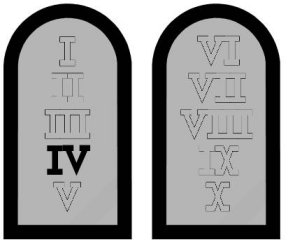
 HEN YOU USE MOST BIBLES, they won’t lay flat when opened to the Book of Numbers. That’s not for any occult reason, but because we don’t spend a whole lot of time reading that book! Therein, however, one finds quite a number of beautiful passages. In one, the Lord teaches Moses what has become known as “the priestly blessing.” The first day of a new year is a fine occasion to remember those beautiful words of blessing, which God, Himself, gave to us:
HEN YOU USE MOST BIBLES, they won’t lay flat when opened to the Book of Numbers. That’s not for any occult reason, but because we don’t spend a whole lot of time reading that book! Therein, however, one finds quite a number of beautiful passages. In one, the Lord teaches Moses what has become known as “the priestly blessing.” The first day of a new year is a fine occasion to remember those beautiful words of blessing, which God, Himself, gave to us:
This is how you shall bless the Israelites.
Say to them:
The LORD bless you and keep you!
The LORD let His face shine upon you, and be gracious to you!
The LORD look upon you kindly and give you peace!
There are more words, too, that God spoke to Moses which are worth remembering today, as we celebrate the Solemnity of the Blessed Virgin Mary, the Holy Mother of God. It was the Lord speaking to Moses on Mount Sinai when we received the 4th Commandment: “Honor thy father and mother.” When we hear those words repeated, we so often think of them as a warning to children about how to behave toward their parents. That is certainly a good and true way of understanding the 4th Commandment, but it is also about more than that.
The 4th Commandment refers not only to our obligations toward our human mothers and fathers, but also to our Mother & Father in heaven. We have a duty, therefore, to love & honor & serve Mary, as well as our Lord. How do we serve Mary? We serve the gentle Virgin by praying her rosary, by celebrating her feast days, and by wearing the brown scapular & miraculous medal.
We would be wise to obey the 4th Commandment in its entirety. If we want to be happy, if we want to be fulfilled, and if we want to go to heaven, we must obey God our Father and Mary our Mother. Apart from their goodness to us, none of us would have any hope of salvation. God could have saved us on His own, but He chose to use the Blessed Virgin as an instrument in our salvation. So, even now, anyone who would hope to be close to God must remain close to His holy Mother and His holy Church.
“Honor thy father and mother.” Those were not just God’s words to Moses. Almighty God speaks those wise words to us, as well, to govern our family life here on earth. They are words that, in a deeper sense, dictate how we must respond with love to our heavenly Father and the Blessed Mother. If we heed that Commandment in both of its senses, we can rightly expect happiness in this new year of grace.
